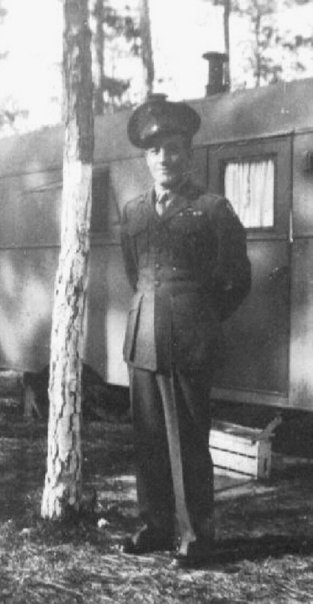
Editor’s note: This is guest post from Marcus Brotherton. It originally ran on Men Who Lead Well (www.marcusbrotherton.com).
I recently interviewed T.I. Miller, a 92-year-old WWII vet who fought on Guadalcanal and New Britain.
When it came to war, Mr. Miller had seen it all. Charging banzai attacks. Severed heads. Bloody arms, legs, and torsos. The works.
After he came home, a man doesn’t forget these things instantly, he said.
I asked him what helped. This was his answer:
“What helped? My wife and family were a big help, especially my wife, Recie. At the same time, it’s something you gotta just do yourself. The secret, I found out, is just to stay busy. There were no government programs to help back then. No therapists to see. Nothing like that.
I was born and raised out in the country. So after I came back from the war, I built me and Recie a house out there close to where I’d grown up. I got out there and roamed around in the mountains. That’s what helped.
One time they closed the mines down for three months. Someone said, “Where you gonna go look for a job.†I said, “I ain’t. I’m gonna spend the summer out in the sunshine.â€
And I did. I took a two pound double bladed axe, walked a half mile up above where I lived. We had a field there, and I cut down big trees and cut them into fence posts. All I had was that axe. I made my own mallet and split those trees myself.
I got me a half acre of ground, plowed it up, and had a field. That same summer I grew potatoes, corn, and beans. The whole summer I spent growing things I wanted to. I’d be out in the woods at daylight. I just worked like that and built myself back up.”
Notice three key actions in Mr. Miller’s plan to heal. I’m no therapist, but I’d consider these important components to helping anybody out of a hard spot.
1. He busied himself with straightforward, non-emotional work.
The war had taxed Mr. Miller’s ability to cope. During those years of horror, he had experienced too many events larger than himself. Splitting wood helped him connect with a simpler world.
2. He got active, outside.
Fresh air, sunshine, nature, and physical exercise helped him regain a sense of security and peacefulness. Notice he didn’t turn to alcohol, drugs, or any such trappings that only result in harm.
3. He could see what he accomplished each day.
Plenty of beneficial activities have non-identifiable benchmarks, but it’s much harder for a man doing this kind of work to feel good about what he’s done. By splitting wood and growing a garden, Mr. Miller could see clear progress on a regular basis. At the end of each day he could point to a pile of fence posts and say, “There it is. I did that.â€
If you know a returning veteran, or anyone for that matter struggling with a dark place, please consider passing this article along.
The advice doesn’t come from me. It comes from someone who was there, survived, healed, and went on to thrive with the rest of his life.
Are you a vet who struggled after coming home from war, or have been in another kind of dark place? What did you do to help heal?


